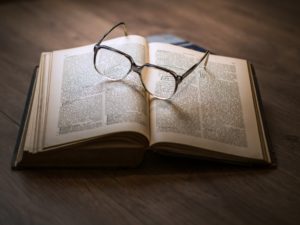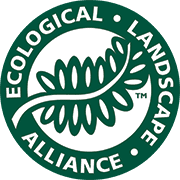What Our Board Is Reading
 As winter storms blanket many parts of the country, it’s a great time to settle in with a good book. Members of ELA’s Board of Directors offer titles of some of the books they’ve been enjoying recently.
As winter storms blanket many parts of the country, it’s a great time to settle in with a good book. Members of ELA’s Board of Directors offer titles of some of the books they’ve been enjoying recently.
Kristin Andres, Association to Preserve Cape Cod
Gathering Moss: A Natural and Cultural History of Mosses (2003) by Robin Wall Kimmerer. Mosses have always fascinated me since childhood when my sister and I would make terrariums from bits of the forest life we’d gathered. There’s a platter full of incredibly interesting scientific facts about mosses, represented in an easily digestible manner, woven together with the author’s personal insights and stories. This read provided me with inspiration and the permission to feel the spiritual connection and love of nature with greater appreciation of the biology of mosses.
Molly Kerker, Brooklyn Botanic Garden
Why Fish Don’t Exist by Lulu Miller. In this part-memoir and part-biography, the author finds herself becoming obsessed with the taxonomist David Star Jordan. She traces his life from a budding naturalist, to a plucky ichthyologist, to an odious eugenicist, as she seeks an answer to the question: is it possible to bring order to a seemingly chaotic world?
Rie Macchiarolo, Parterre Ecological
I’ve been “reading” Woody Plants of the Northern Forests by Jerry Jenkins. It’s a photographic guide to plants using very high quality images to help identify trees and shrubs. This is great for winter bud ID work! He also has a lot of this and other information on his website https://northernforestatlas.org/ that can be purchased or downloaded. Excellent resources for those wanting to improve their plant ID skills!
Amanda Sloan, Raingarden Design Studio
I’ve been savoring Braiding Sweetgrass, by Robin Wall Kimmerer. The book was given to me by my daughter, an archeologist whose research focuses on a native Alaskan Yup’ik community where recently excavated artifacts are studied using a combination of science and listening to the teachings of the community Elders. Dr. Kimmerer, a college professor, botanist, and member of the Citizen Potawatomi Nation, weaves “indigenous wisdom, scientific knowledge, and the teachings of plants” to reveal the adjacencies of ancient knowledge and modern science, and how these discovery and belief systems can compliment each other. It’s poetic, wonderfully told, and exudes truth!
Julie Snell, TEND Landscape
Underland by Robert Macfarlane is a hard to put down examination of things below or beyond surface. It was so interesting and led me to his other works, The Old Ways and Landmarks which I also enjoyed. I especially loved Landmarks – a book about the words that we use to describe landscape.
Angela Tanner, Jenick Studio
I recently listened to the audio version of The Entangled Life by Merlin Sheldrake, read by the author. He explains the multifaceted dimensions of what goes on below the soil: the interconnected worlds of fungi and plants, including how these networks affect humans biologically, culturally, and artistically. I found it both poetic and informative.
I also recently read Underland by Robert Macfarlane. He overlaps on a few of the same subjects as Merlin Sheldrake’s Entangled Life, but most of the other chapters dive into quite different territory, talking more about the physical and emotional experiences of being in different underground places and their connections to us through history and time.
Dan Wilder, Norcross Wildlife Sanctuary
Winter World by Bernd Heinrich. A fascinating look at how different animals have adapted to survive the winter season. From frogs freezing (almost) solid to why chipmunks dream this book was equal parts informative and magical.
The Rambunctious Garden: Saving Nature in a Post-Wild World by Emma Marris. A new look at conservation. Forget the days of trying to restore the world to some pre-human period and instead look at how we can build healthy landscapes in the real world.
Our Changing Emails
You may have noticed that more ELA emails are coming from @ecolandscaping.org addresses. As staff and board members transition to these accounts, we hope you’ll add us to your Safe Sender list so that we can stay in touch. We’d hate to lose you!
Join New Wednesday Walks
The Ecological Landscape Alliance (ELA) announces a return of Wednesday Walks in the Garden. For 12 weeks beginning on March 31st, ELA will again offer free webinar presentations as respite to gardeners across the country and beyond who continue to struggle with the stress of the COVID pandemic. Presentations will cover a wide range of gardening topics from the mysteries of soil microbes to foliage-framed focal points. This series will inform, delight, and inspire gardeners and designers of all backgrounds. We hope that you’ll join our Wednesday Walks in the Garden for a nature-filled diversion as we introduce new plants, new practices, and inspiration to get outdoors – a sanctuary in the midst of continuing lockdowns.
Virtual Coffee February 17
ELA’s Virtual Volunteer Coffee continues on Wednesday, February 17, 12:30-1:00. Call in to tell us your idea for a program, or about the great speaker you heard or book you read. To get the call-in number email Maureen@ecolandscaping.org.

